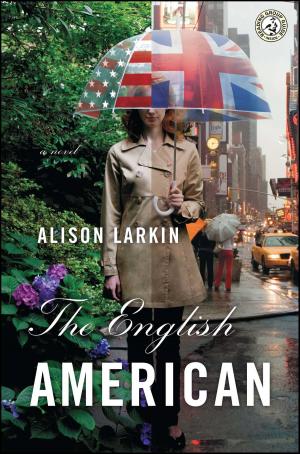| Author: | Grant Allen, P. Macnab | ISBN: | 1230000286265 |
| Publisher: | London Chatto & Windus, Piccadilly | Publication: | December 17, 2014 |
| Imprint: | Language: | English |
| Author: | Grant Allen, P. Macnab |
| ISBN: | 1230000286265 |
| Publisher: | London Chatto & Windus, Piccadilly |
| Publication: | December 17, 2014 |
| Imprint: | |
| Language: | English |
Example in this ebook
CHAPTER XXIX. A VIEW OF ROME, By Hiram Winthrop.
In the midst of an undulating sunlit plain, fresh with flowers in spring, burnt and yellow in summer and autumn, a great sordid shrivelled city blinks and festers visibly among the rags and tatters in the eye of day. Within its huge imperial walls the shrunken modern town has left a broad skirt of unoccupied hillocks; low mounds covered by stunted straggling vineyards, or broken here and there by shabby unpicturesque monasteries, with long straight pollard-lined roads stretching interminably in dreary lines between the distant boundaries. In the very centre, along some low flats that bound a dull, muddy, silent river, the actual inhabited city itself crouches humbly beneath the mouldering ruins of a nobler age. A shapeless mass of dingy, weather-stained, discoloured, tile-roofed buildings, with all its stucco peeling in the sun, it lies crowded and jammed into a narrow labyrinth of tortuous alleys, reeking with dirt, and rich in ragged filthy beggars. One huge lazaretto of sin and pestilence, choked with the accumulated rubbish and kitchen-middens of forty centuries—that was Hiram Winthrop's Rome—the Rome which fate and duty compelled him to exchange for the wild woods and the free life of untrammelled nature.
Step into one of the tortuous alleys, and you see this abomination of desolation even more distinctly, under the pitiless all-exposing glare of an Italian sky. The blotchy walls rise so high into the air to right and left, that they make the narrow lane gloomy even at midday; and yet, the light pours down obliquely upon the decaying plaster with so fierce a power that every rent and gap and dirt-stain stands out distinctly, crying in vain to the squalid tenants in the dens within to repair its unutterable dilapidation. Beneath, the little slippery pavement consists of herringbone courses of sharp stones; overhead, from ropes fastened across the street, lines of rags and tatters flutter idly in the wind, proving (what Hiram was otherwise inclined to doubt) that people at Rome do sometimes ostensibly wash their garments, or at least damp them. Dark gloomy shops line either side; shops windowless and doorless, entered and closed by shutters, and just rendered visible by the feeble lamp that serves a double duty as lightener of the general darkness, and taper to the tiny painted shrine of the wooden Madonna. A world of hungry ragged men, hungry dirty slatternly women, hungry children playing in the gutter, hungry priests pervading the very atmosphere—that on a closer view was Rome as it appeared to Hiram Winthrop.
To be sure, there was a little more of it. Up towards the Corso and Piazza del Popolo, there was a gaunt, modern Haussmannised quarter, the Rome of the strangers—cleaner by a fraction, whiter by a great deal, less odorous by a trifle, but still to Hiram Winthrop utterly flat, stale, and unprofitable. The one Rome was ugly, if picturesque; the other Rome was modern, and not even ugly.
Work at Seguin's studio was also to Hiram a wretched mockery of an artistic training. The more he saw of the French painter, the more he disliked him: and what was worse, the dislike was plainly mutual. For Audouin's sake, because Audouin had wished it, Hiram went on working feebly at historical pictures which he hated and could never possibly care for; but he panted to be free from the wretched bondage at once and for ever. Two years after his arrival in Rome, where he was now living upon the little capital he had derived from the sale of the deacon's farm, Hiram determined, on Audouin's strenuous advice, by letter delivered, to send a tentative painting to Paris for the Salon. Seguin watched it once or twice in the course of its completion, but he only shrugged his lean shoulders ominously, and muttered incomprehensible military oaths to himself, which he had picked up half a century before from his father, the ex-corporal.
To be continue in this ebook
Example in this ebook
CHAPTER XXIX. A VIEW OF ROME, By Hiram Winthrop.
In the midst of an undulating sunlit plain, fresh with flowers in spring, burnt and yellow in summer and autumn, a great sordid shrivelled city blinks and festers visibly among the rags and tatters in the eye of day. Within its huge imperial walls the shrunken modern town has left a broad skirt of unoccupied hillocks; low mounds covered by stunted straggling vineyards, or broken here and there by shabby unpicturesque monasteries, with long straight pollard-lined roads stretching interminably in dreary lines between the distant boundaries. In the very centre, along some low flats that bound a dull, muddy, silent river, the actual inhabited city itself crouches humbly beneath the mouldering ruins of a nobler age. A shapeless mass of dingy, weather-stained, discoloured, tile-roofed buildings, with all its stucco peeling in the sun, it lies crowded and jammed into a narrow labyrinth of tortuous alleys, reeking with dirt, and rich in ragged filthy beggars. One huge lazaretto of sin and pestilence, choked with the accumulated rubbish and kitchen-middens of forty centuries—that was Hiram Winthrop's Rome—the Rome which fate and duty compelled him to exchange for the wild woods and the free life of untrammelled nature.
Step into one of the tortuous alleys, and you see this abomination of desolation even more distinctly, under the pitiless all-exposing glare of an Italian sky. The blotchy walls rise so high into the air to right and left, that they make the narrow lane gloomy even at midday; and yet, the light pours down obliquely upon the decaying plaster with so fierce a power that every rent and gap and dirt-stain stands out distinctly, crying in vain to the squalid tenants in the dens within to repair its unutterable dilapidation. Beneath, the little slippery pavement consists of herringbone courses of sharp stones; overhead, from ropes fastened across the street, lines of rags and tatters flutter idly in the wind, proving (what Hiram was otherwise inclined to doubt) that people at Rome do sometimes ostensibly wash their garments, or at least damp them. Dark gloomy shops line either side; shops windowless and doorless, entered and closed by shutters, and just rendered visible by the feeble lamp that serves a double duty as lightener of the general darkness, and taper to the tiny painted shrine of the wooden Madonna. A world of hungry ragged men, hungry dirty slatternly women, hungry children playing in the gutter, hungry priests pervading the very atmosphere—that on a closer view was Rome as it appeared to Hiram Winthrop.
To be sure, there was a little more of it. Up towards the Corso and Piazza del Popolo, there was a gaunt, modern Haussmannised quarter, the Rome of the strangers—cleaner by a fraction, whiter by a great deal, less odorous by a trifle, but still to Hiram Winthrop utterly flat, stale, and unprofitable. The one Rome was ugly, if picturesque; the other Rome was modern, and not even ugly.
Work at Seguin's studio was also to Hiram a wretched mockery of an artistic training. The more he saw of the French painter, the more he disliked him: and what was worse, the dislike was plainly mutual. For Audouin's sake, because Audouin had wished it, Hiram went on working feebly at historical pictures which he hated and could never possibly care for; but he panted to be free from the wretched bondage at once and for ever. Two years after his arrival in Rome, where he was now living upon the little capital he had derived from the sale of the deacon's farm, Hiram determined, on Audouin's strenuous advice, by letter delivered, to send a tentative painting to Paris for the Salon. Seguin watched it once or twice in the course of its completion, but he only shrugged his lean shoulders ominously, and muttered incomprehensible military oaths to himself, which he had picked up half a century before from his father, the ex-corporal.
To be continue in this ebook















